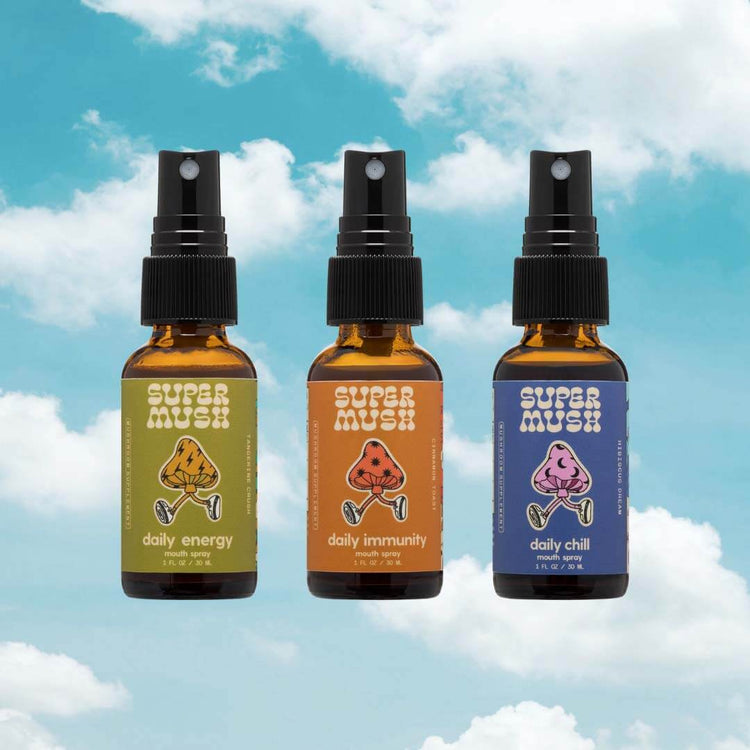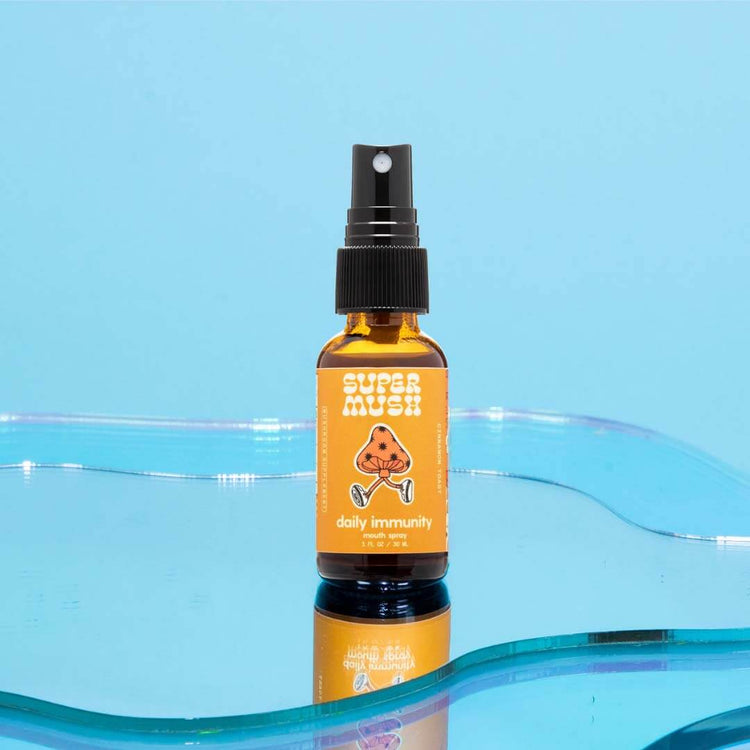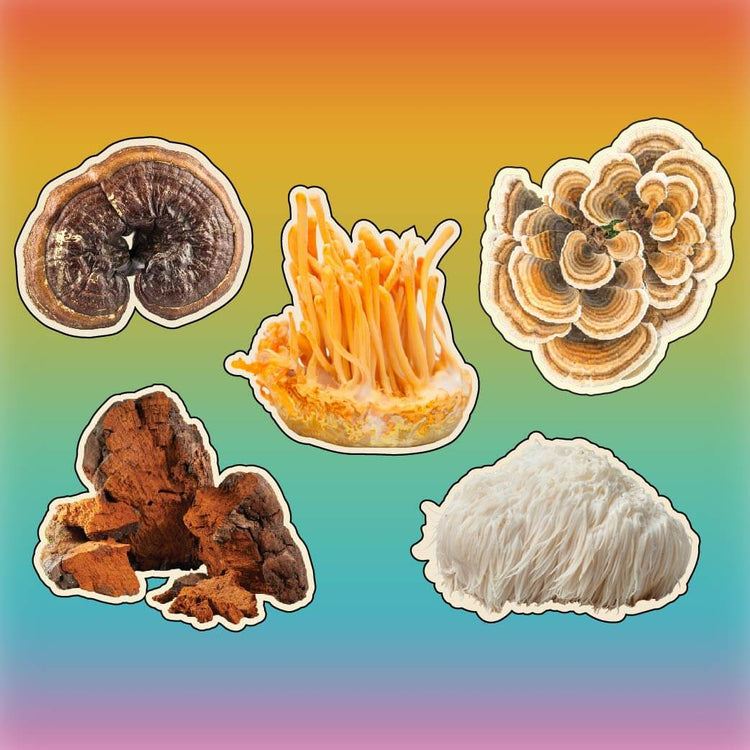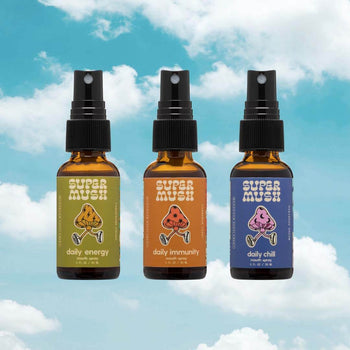Mushrooms have long been a staple in various cuisines around the world, but their benefits extend far beyond the culinary realm. Often referred to as "nature's superfood," mushrooms are packed with nutrients and bioactive compounds that can support overall health and well-being. In this article, we'll explore the various health benefits of mushrooms, the science behind their nutritional value, and why incorporating them into your diet can be a game-changer for your health.
The Nutritional Profile of Mushrooms
What Makes Mushrooms Nutrient-Dense?
Mushrooms are low in calories but rich in essential nutrients, making them a nutrient-dense food. They are an excellent source of:
Vitamins: Particularly B vitamins like riboflavin (B2), niacin (B3), and pantothenic acid (B5), which are essential for energy production and overall metabolic health.
Minerals: Mushrooms are a good source of selenium, copper, and potassium, minerals that play vital roles in immune function, heart health, and electrolyte balance.
Antioxidants: Mushrooms contain antioxidants like ergothioneine and glutathione, which help protect cells from oxidative stress and reduce inflammation.
Scientific Insight:
According to the USDA, mushrooms are one of the richest sources of selenium in the plant kingdom. Selenium is a powerful antioxidant that helps protect cells from damage and supports the immune system.
Low in Calories, High in Fiber
Mushrooms are naturally low in calories, making them an excellent food choice for weight management. They are also high in dietary fiber, which aids digestion, promotes satiety, and supports gut health.
Scientific Insight:
A study published in the journal Appetite found that participants who consumed a mushroom-based dish felt fuller for longer and consumed fewer calories compared to those who ate a meat-based dish with the same calorie content.
Health Benefits of Mushrooms
1. Immune System Support
Mushrooms are known for their immune-boosting properties, thanks to their high content of beta-glucans. Beta-glucans are natural polysaccharides that stimulate the immune system, enhancing the body's ability to fight off infections and diseases.
Scientific Evidence:
Research from the Journal of Nutritional Biochemistry shows that beta-glucans in mushrooms can enhance the activity of natural killer cells and macrophages, which are crucial for the body's defense against pathogens.
2. Cognitive Health and Mental Clarity
Certain mushrooms, like Lion’s Mane, have been shown to support cognitive health by promoting the production of nerve growth factor (NGF). NGF is essential for the growth, maintenance, and survival of neurons, which are critical for memory, focus, and overall brain function.
Scientific Evidence:
A study published in the International Journal of Medicinal Mushrooms found that Lion’s Mane extract improved cognitive function in adults with mild cognitive impairment, suggesting its potential benefits for brain health.
3. Heart Health
Mushrooms can contribute to heart health by lowering cholesterol levels, reducing inflammation, and providing essential nutrients like potassium, which helps regulate blood pressure.
Scientific Evidence:
A study in the American Journal of Clinical Nutrition found that adding mushrooms to a healthy diet can help reduce cholesterol levels and improve heart health markers in both healthy individuals and those at risk of cardiovascular disease.
4. Anti-Inflammatory Properties
Mushrooms contain compounds like ergothioneine and glutathione, which have powerful anti-inflammatory effects. Chronic inflammation is linked to various health issues, including heart disease, diabetes, and cancer.
Scientific Evidence:
Research in the journal Food Chemistry suggests that the antioxidant properties of mushrooms can help reduce markers of inflammation in the body, potentially lowering the risk of chronic diseases.
5. Cancer-Fighting Potential
Some mushrooms, such as Reishi, Shiitake, and Turkey Tail, are believed to have anti-cancer properties. They contain compounds that may help inhibit the growth of cancer cells and boost the immune system's ability to fight cancer.
Scientific Evidence:
A study published in the journal Cancer Research found that polysaccharides from Turkey Tail mushrooms slowed the growth of certain cancer cells and enhanced the effects of chemotherapy in animal models.
The Role of Medicinal Mushrooms
Medicinal Mushrooms: A Closer Look
While all mushrooms offer health benefits, medicinal mushrooms like Reishi, Chaga, Cordyceps, and Lion’s Mane have been used for centuries in traditional medicine for their potent healing properties.
1. Reishi Mushroom:
Known as the "mushroom of immortality," Reishi is valued for its immune-boosting, anti-inflammatory, and anti-cancer properties.
2. Chaga Mushroom:
Chaga is rich in antioxidants and has been shown to reduce inflammation, boost immunity, and even lower blood sugar levels.
3. Cordyceps Mushroom:
Cordyceps is renowned for its ability to enhance energy, stamina, and athletic performance by improving oxygen utilization in the body.
4. Lion’s Mane Mushroom:
Lion’s Mane is recognized for its cognitive-enhancing effects, promoting brain health, and potentially protecting against neurodegenerative diseases.
Scientific Insight:
A review in the journal Advances in Pharmacological Sciences highlights the therapeutic potential of medicinal mushrooms in treating a wide range of health conditions, from immune deficiencies to neurodegenerative disorders.
How to Incorporate Mushrooms into Your Diet
Cooking with Mushrooms
Mushrooms are incredibly versatile and can be added to a variety of dishes, from soups and salads to stir-fries and pasta. Cooking mushrooms enhances their flavor and nutrient availability.
Tips for Cooking:
Sautéing: A quick sauté with olive oil and garlic brings out the umami flavors of mushrooms.
Grilling: Grilled mushrooms make a great meat substitute for burgers and sandwiches.
Adding to Soups and Stews: Mushrooms add depth and richness to broths and stews.
Mushroom Supplements
For those who may not enjoy the taste or texture of mushrooms, supplements like mushroom powders, capsules, and gummies offer a convenient way to reap their health benefits.
Choosing the Right Supplement:
Look for Quality: Choose supplements made from the fruiting body of the mushroom, as this part contains the highest concentration of beneficial compounds.
Check for Purity: Opt for organic, non-GMO products that are free from fillers and additives.
Third-Party Testing: Ensure the supplement has been tested for potency and purity by a third-party laboratory.
Conclusion
Mushrooms are much more than a culinary delight – they are a powerhouse of nutrients and bioactive compounds that can significantly boost your health. From supporting immune function and cognitive health to protecting against chronic diseases and improving heart health, mushrooms offer a wide range of benefits that make them a valuable addition to any diet. Whether you enjoy them in your meals or prefer the convenience of supplements, incorporating mushrooms into your daily routine is a step towards better health and well-being.



























